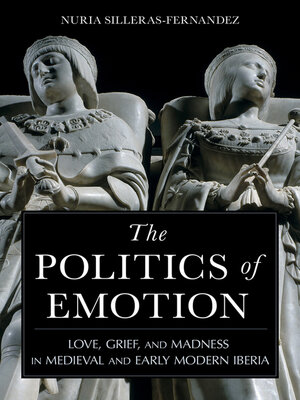The Politics of Emotion
ebook ∣ Love, Grief, and Madness in Medieval and Early Modern Iberia
By Nuria Silleras-Fernandez

Sign up to save your library
With an OverDrive account, you can save your favorite libraries for at-a-glance information about availability. Find out more about OverDrive accounts.
Find this title in Libby, the library reading app by OverDrive.



Search for a digital library with this title
Title found at these libraries:
| Loading... |
The Politics of Emotion explores the intersection of powerful emotional states—love, melancholy, grief, and madness—with gender and political power on the Iberian Peninsula from the Middle Ages to the early modern period. Using an array of sources—literary texts, medical treatises, and archival documents—Nuria Silleras-Fernandez focuses on three royal women: Isabel of Portugal (1428–1496), queen-consort of Castile; Isabel of Aragon (1470–1498), queen-consort of Portugal; and Juana of Castile (1479–1555), queen of Castile and its empire. Each of these women was perceived by their contemporaries as having gone "mad" as a result of excessive grief, and all three were related to Isabel the Catholic (1451–1504), queen of Castile and a woman lauded in her time as a paragon of reason.
Through the lives and experiences of these royal women and the observations, judgments, and machinations of their families, entourages, and circles of writers, chronicles, courtiers, moralists, and physicians in their orbits, Silleras-Fernandez addresses critical questions about how royal women in Iberia were expected to behave, the affective standards to which they were held, and how perceptions about their emotional states influenced the way they were able to exercise power. More broadly, The Politics of Emotion details how the court cultures in medieval and early modern Castile and Portugal contributed to the development of new notions of emotional excess and mental illness.






